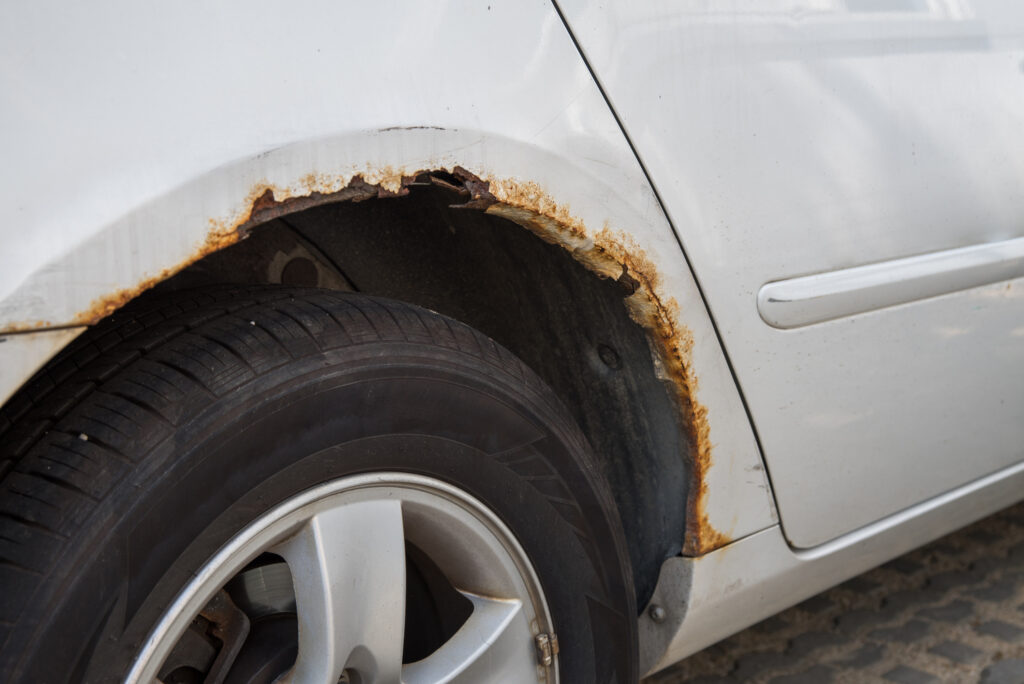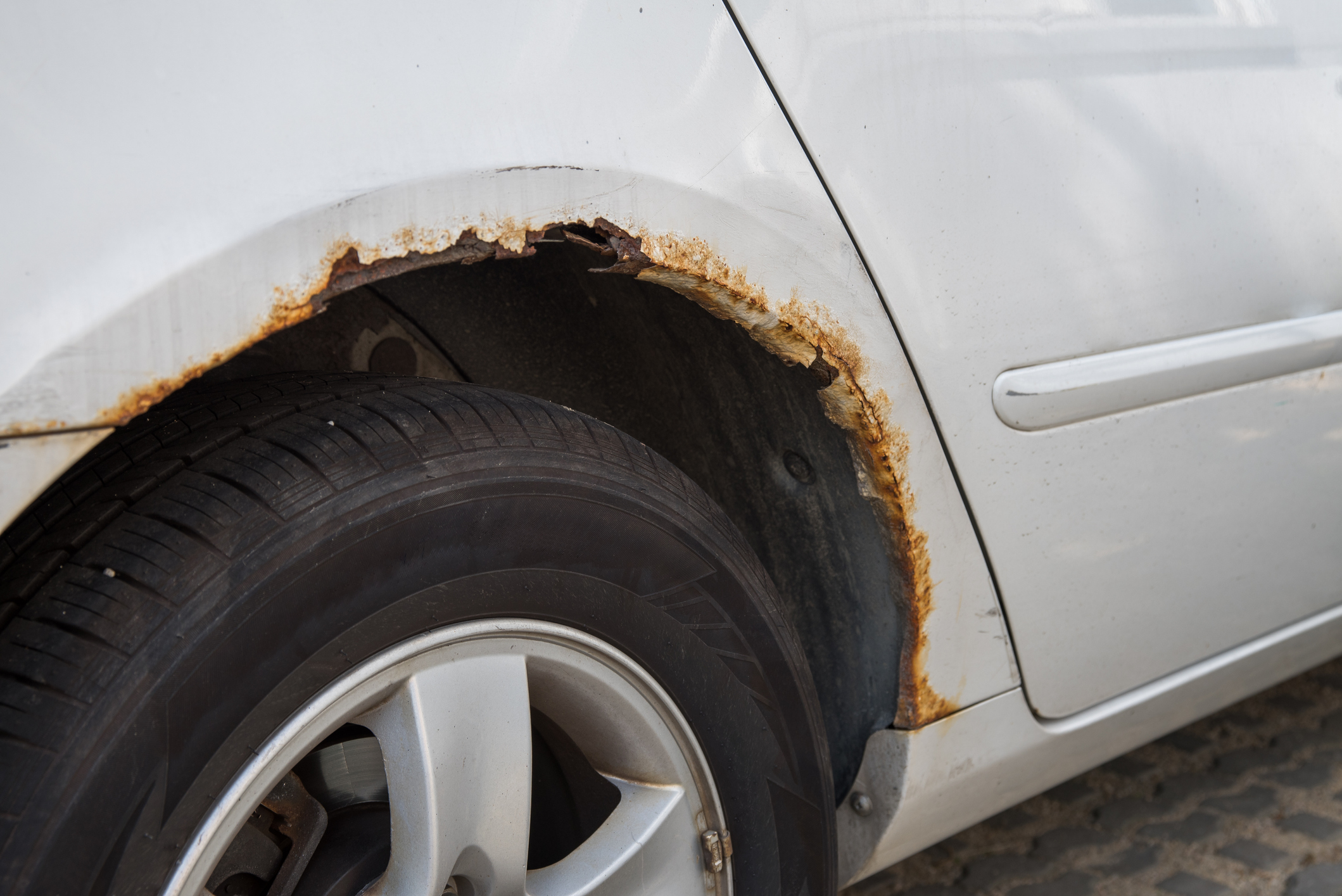
The Ultimate Guide to Choosing the Best Rust Killer for Cars: Protect Your Investment
Rust is a relentless enemy of cars, silently eating away at the metal and diminishing their value. Finding the best rust killer for cars is crucial for vehicle owners looking to preserve their investment and maintain their car’s appearance and structural integrity. This comprehensive guide will explore the various types of rust killers available, factors to consider when choosing one, and provide recommendations to help you make an informed decision.
Understanding Rust and Its Impact on Cars
Rust, scientifically known as iron oxide, is the result of a chemical reaction between iron, oxygen, and moisture. Cars are particularly vulnerable to rust due to their constant exposure to the elements, road salt, and other corrosive substances. Once rust begins to form, it can spread rapidly, weakening the metal and leading to costly repairs. Ignoring rust can eventually compromise the safety of your vehicle.
The Mechanics of Rust Formation
The process starts when iron atoms on the car’s surface lose electrons in the presence of oxygen and water, forming iron ions. These ions combine with oxygen to create iron oxide, or rust. The presence of electrolytes, such as salt, accelerates this process, making cars in colder climates, where roads are salted during winter, especially susceptible.
Why Cars Are Prime Targets for Rust
Several factors contribute to cars being prime targets for rust:
- Exposure to the Elements: Rain, snow, and humidity all contribute to rust formation.
- Road Salt: Salt used to de-ice roads is highly corrosive.
- Scratches and Chips: These expose the bare metal to the elements.
- Poor Maintenance: Neglecting to wash and wax your car regularly can accelerate rust development.
Types of Rust Killers for Cars
There are several types of rust killers for cars available, each with its own advantages and disadvantages. Understanding these differences is essential for choosing the right product for your needs.
Rust Converters
Rust converters chemically transform rust into a stable, inert compound. They typically contain tannic acid or phosphoric acid, which reacts with the iron oxide to create a protective layer. This layer prevents further corrosion and provides a suitable surface for painting.
Pros: Easy to apply, prevents further rust, prepares the surface for painting.
Cons: May not be effective on heavy rust, requires thorough surface preparation.
Rust Removers
Rust removers work by dissolving or removing the rust from the metal surface. They come in various forms, including liquids, gels, and pastes. Some rust removers contain harsh chemicals, while others are more environmentally friendly.
Pros: Effective on heavy rust, can be used on various surfaces.
Cons: May require multiple applications, some products are corrosive.
Rust Inhibitors
Rust inhibitors create a protective barrier on the metal surface, preventing moisture and oxygen from reaching the iron. They are often used as a preventative measure or after removing rust to protect the metal from future corrosion.
Pros: Prevents future rust, long-lasting protection.
Cons: Not effective on existing rust, requires clean surface for application.
DIY Rust Removal Methods
For minor rust spots, some DIY methods can be effective. These include using vinegar, baking soda, or lemon juice. While these methods are less aggressive than commercial rust removers, they can be a good option for small areas of rust.
Pros: Inexpensive, readily available materials.
Cons: Less effective on heavy rust, requires more effort.
Factors to Consider When Choosing a Rust Killer
Selecting the best rust killer for cars involves considering several factors to ensure you choose the right product for your specific needs.
Severity of Rust
The extent of the rust will determine the type of rust killer you need. For light surface rust, a rust converter or inhibitor may be sufficient. For heavy rust, a rust remover may be necessary.
Type of Metal
Different metals react differently to rust killers. Some products are specifically formulated for certain types of metal, such as steel or aluminum. Make sure to choose a product that is compatible with the metal on your car.
Application Method
Consider how easy the product is to apply. Some rust killers come in spray bottles, while others require brushing or dipping. Choose a product with an application method that you are comfortable with.
Safety Precautions
Always follow the manufacturer’s safety instructions when using rust killers. Some products contain harsh chemicals that can be harmful if inhaled or come into contact with skin. Wear gloves, eye protection, and a respirator when necessary.
Environmental Impact
If you are concerned about the environment, look for rust killers that are biodegradable or contain fewer harmful chemicals. There are several eco-friendly rust removal options available.
Cost
Rust killers vary in price, so consider your budget when making a decision. While it may be tempting to choose the cheapest option, investing in a high-quality product can save you money in the long run by preventing further rust and damage.
Top Rust Killer Recommendations for Cars
Based on effectiveness, ease of use, and customer reviews, here are some of the top rust killer for cars recommendations:
- POR-15 Rust Preventive Coating: Known for its exceptional rust prevention properties, POR-15 is a popular choice for automotive enthusiasts. It forms a rock-hard, non-porous coating that seals out moisture and prevents rust from returning.
- Evapo-Rust: This water-based rust remover is non-toxic and biodegradable, making it a safe and environmentally friendly option. It effectively removes rust without harming the surrounding metal.
- KBS Coatings Rust Blast: This rust remover and metal etch prepares the surface for painting by removing rust and creating a slightly rough texture for better adhesion.
- Loctite Naval Jelly Rust Dissolver: A thick gel that clings to vertical surfaces, making it ideal for removing rust from hard-to-reach areas. It dissolves rust quickly and easily.
- CRC Rust Converter: This product converts rust into a paintable primer, making it a convenient option for those looking to repair and repaint rusted areas.
Step-by-Step Guide to Applying Rust Killer
Proper application is crucial for the effectiveness of any rust killer for cars. Follow these steps for the best results:
- Prepare the Surface: Clean the area thoroughly with soap and water to remove dirt, grease, and loose rust. Use a wire brush or sandpaper to remove as much rust as possible.
- Apply the Rust Killer: Follow the manufacturer’s instructions for applying the rust killer. Some products require multiple coats or a specific drying time.
- Allow to Dry: Let the rust killer dry completely before applying any primer or paint. This may take several hours or even overnight.
- Prime and Paint: Once the rust killer is dry, apply a primer to protect the metal and provide a smooth surface for painting. Then, paint the area with a color that matches your car’s finish.
- Apply a Protective Coating: Consider applying a protective coating, such as wax or sealant, to prevent future rust.
Preventing Rust: Long-Term Strategies
Preventing rust is always better than treating it. Here are some long-term strategies to protect your car from rust:
- Regular Washing and Waxing: Wash your car regularly to remove dirt, salt, and other corrosive substances. Waxing provides a protective barrier against the elements.
- Touch Up Paint: Repair scratches and chips promptly to prevent rust from forming. Use touch-up paint to cover exposed metal.
- Undercoating: Consider applying an undercoating to protect the undercarriage of your car from rust. This is especially important if you live in an area with harsh winters.
- Garage Parking: Park your car in a garage or covered area to protect it from the elements.
- Rustproofing: Have your car professionally rustproofed to provide long-term protection against corrosion.
The Science Behind Rust Prevention
Understanding the science behind rust prevention can help you make informed decisions about how to protect your car. Here are some key concepts:
Galvanic Protection
Galvanic protection involves using a sacrificial metal to protect the underlying steel from corrosion. This is often achieved through galvanizing, where the steel is coated with zinc. The zinc corrodes first, protecting the steel from rust.
Electrochemical Reactions
Rust formation is an electrochemical reaction. By disrupting this reaction, you can prevent rust. This can be achieved by creating a barrier between the metal and the environment, such as with paint or a rust inhibitor.
Passivation
Passivation is the process of creating a thin, inert layer on the metal surface that protects it from corrosion. Some rust inhibitors work by passivating the metal, forming a protective oxide layer.
When to Seek Professional Help
While many rust removal and prevention tasks can be done at home, there are times when it’s best to seek professional help. If you have extensive rust damage or are not comfortable working with chemicals, consult a professional auto body shop. They have the expertise and equipment to properly remove rust and repair any damage.
Conclusion: Choosing the Best Rust Killer for Your Car
Selecting the best rust killer for cars requires careful consideration of the type of rust, the metal involved, and your personal preferences. By understanding the different types of rust killers available and following the application guidelines, you can effectively protect your car from the damaging effects of rust. Remember to prioritize safety and consider long-term prevention strategies to keep your car looking its best for years to come. Regular maintenance, combined with the right rust prevention products, is the key to a rust-free vehicle. [See also: Car Detailing Tips for Beginners], [See also: Best Car Waxes for Protecting Your Paint], [See also: How to Prevent Car Corrosion in Winter]

